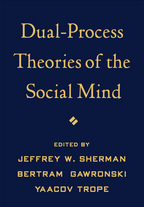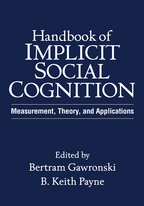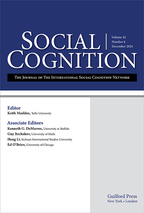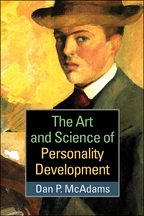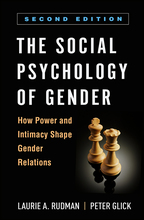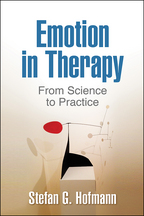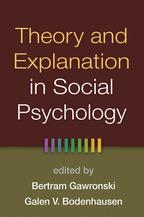Dual-Process Theories of the Social Mind
Edited by Jeffrey W. Sherman, Bertram Gawronski, and Yaacov Trope
Hardcovere-bookprint + e-book
Hardcover
orderApril 22, 2014
ISBN 9781462514397
Price: $109.00 624 Pages
Size: 7" x 10"
“One may begin to wish for the good old days when automatic was automatic and controlled was…well, notautomatic. Yet a path forward does emerge from the book, a sort of ‘self-regulation intervention’ for researchers who develop or apply dual-process models. Rather than automatically relying on our habitual and occasionally somewhat vaguely defined dichotomies, we should make our assumptions explicit and think through the degree to which our work is addressing operating principles, operating conditions, or both. This is the level of deliberation that the editors required of their contributors, and it is an excellent general standard for psychological science….In spite of the ubiquity of dual-process models and the plethora of studies from this perspective, the future shape of this research seems wide open, and Dual-Process Theories of the Social Mindoffers a wide variety of starting points for those who will carry it forward.”

—PsycCRITIQUES
“A very useful update to the state of the art in the field….The editors have done an admirable job of organizing the myriad of models while also including contributions that address the concerns that have arisen with their use. The combination of the large number of models covered along with the focus upon their systematic analysis helps to create a text that truly captures the current zeitgeist of the field, providing both clarity for existing models and suggesting paths forward towards future research. As such, it would be of greatest use as a reference for researchers and graduate students either already employing dual-process explanations field or those interested in using them appropriately and effectively in new research. It would also be of use as a graduate level text for social psychology and judgment and decision making courses, as well as classes in other fields interested in the influence of controlled and automatic processing on social behavior.”

—Journal of Social Psychology
“Two-mode models are social psychology's best insight; this volume assembles major contemporary contributors. Researchers at all stages—from students to faculty—will benefit from reading and using this book.”

—Susan T. Fiske, PhD, Eugene Higgins Professor, Psychology and Public Affairs, Princeton University
“Sherman, Gawronski, and Trope have produced a landmark volume on the yin and yang of social cognition. This book is thorough, thought-provoking, scholarly, and engaging. As the chapters amply demonstrate, the separation of social thought into its component processes has led to numerous important advances in social psychology, and often to fundamental questions about what it means to be human. Dual-Process Theories of the Social Mind will be a great accompaniment to a variety of advanced undergraduate and graduate courses, and likely will be one of the most regularly accessed books on your office shelf.”

—William von Hippel, PhD, School of Psychology, University of Queensland, Australia
“Sherman, Gawronski and Trope have gathered wide-ranging and thoughtful chapters on a topic that is at the center of psychology—the dual ways in which our minds think, feel, and initiate action. These discussions will inform and challenge your thinking and provide a more sophisticated understanding of the heart of social cognition.”

—Mahzarin R. Banaji, PhD, Richard Clarke Cabot Professor of Social Ethics, Department of Psychology, Harvard University
—PsycCRITIQUES
“A very useful update to the state of the art in the field….The editors have done an admirable job of organizing the myriad of models while also including contributions that address the concerns that have arisen with their use. The combination of the large number of models covered along with the focus upon their systematic analysis helps to create a text that truly captures the current zeitgeist of the field, providing both clarity for existing models and suggesting paths forward towards future research. As such, it would be of greatest use as a reference for researchers and graduate students either already employing dual-process explanations field or those interested in using them appropriately and effectively in new research. It would also be of use as a graduate level text for social psychology and judgment and decision making courses, as well as classes in other fields interested in the influence of controlled and automatic processing on social behavior.”
—Journal of Social Psychology
“Two-mode models are social psychology's best insight; this volume assembles major contemporary contributors. Researchers at all stages—from students to faculty—will benefit from reading and using this book.”
—Susan T. Fiske, PhD, Eugene Higgins Professor, Psychology and Public Affairs, Princeton University
“Sherman, Gawronski, and Trope have produced a landmark volume on the yin and yang of social cognition. This book is thorough, thought-provoking, scholarly, and engaging. As the chapters amply demonstrate, the separation of social thought into its component processes has led to numerous important advances in social psychology, and often to fundamental questions about what it means to be human. Dual-Process Theories of the Social Mind will be a great accompaniment to a variety of advanced undergraduate and graduate courses, and likely will be one of the most regularly accessed books on your office shelf.”
—William von Hippel, PhD, School of Psychology, University of Queensland, Australia
“Sherman, Gawronski and Trope have gathered wide-ranging and thoughtful chapters on a topic that is at the center of psychology—the dual ways in which our minds think, feel, and initiate action. These discussions will inform and challenge your thinking and provide a more sophisticated understanding of the heart of social cognition.”
—Mahzarin R. Banaji, PhD, Richard Clarke Cabot Professor of Social Ethics, Department of Psychology, Harvard University

